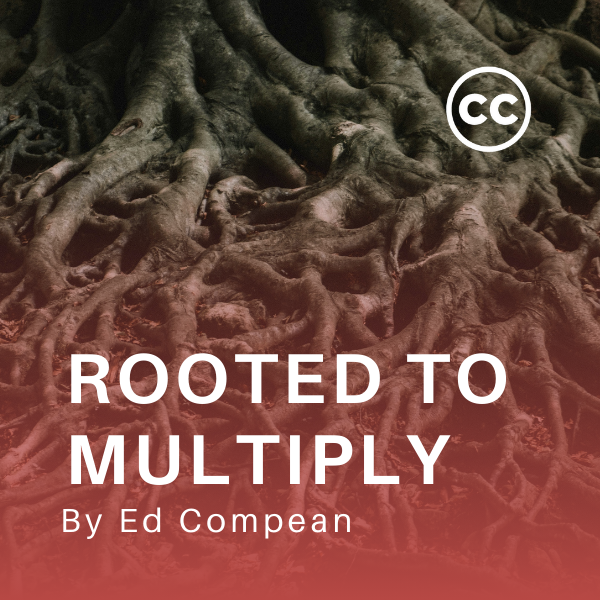
Three years ago, my inbox exploded with church planting visions from places as diverse as a bustling city in Pakistan and remote villages in East Africa. Others were from some of America’s largest cities, to a few from quiet towns just minutes from where I pastor on California’s Central Coast. This happened when I joined Calvary Global Network’s Cultivate Church Planting initiative as the intake coordinator for potential church planters. Through these submissions, I’ve heard hundreds of voices—some raw with passion, some nervous—each seeking to live out God’s mission. From these voices, I’ve identified four truths every future planter and mentor needs to know.
1. Healthy Plants Grow from Healthy Roots
My first contact with a potential church planter usually comes after they’ve completed the Cultivate Church Planting Initial Assessment, which leads to a phone interview. Again and again, I’m surprised by how many have never involved their church in their desire to plant. Some aren’t even connected to a local church at all—a troubling starting point for anyone hoping to plant one.
In Acts 13, we see a different story. The scene opens with key leaders in the Antioch church worshiping the Lord when the Holy Spirit speaks: “Set apart for me Barnabas and Saul for the work to which I have called them.” The church didn’t just give them a blessing and wave goodbye. They sent them out with prayer, authority, and support. This was no casual send-off; it was the launch of a movement. Barnabas and Paul returned again and again to Antioch, anchored to their sending church. Healthy plants are cultivated from healthy roots. Always.
This isn’t to dismiss the roles of Bible colleges and seminaries, which are valuable tools for God’s mission. Similarly, church planting networks and denominational structures can be helpful. Yet when the disciples heard the Great Commission—to go and make disciples, to baptize, and to teach—they responded by planting churches, which would in turn plant churches.
2. Roots Grow Stronger Together
Whether by email or during the follow-up phone call after the initial assessment, potential planters have immediately asked for access to Cultivate’s church planting tools. And yes, we have excellent resources: a comprehensive, Calvary Chapel-based church planting manual authored by one of our founders, multiple in-depth assessments, including the 360-Degree Robust Assessment, and access to grants. Yet, what such a question misses is that Cultivate’s greatest asset isn’t the tools we put in their hands—it’s the people we place at their side: mentors and coaches bound together by a Christ-centered passion to see the gospel advance through new churches.
Paul’s letters to the younger Timothy reveal a mentoring relationship focused on character formation and spiritual growth. Similarly, every potential planter at Cultivate is united with a mentor who walks with them through the resources, relationally prepares them for planting, and remains in contact for at least a year post-launch. Instead of a planter and their family navigating the challenges of planting alone, they are supported by an experienced mentor who desires them to thrive—ideally, their pastor or another former church planter from their home church.
In addition to a dedicated mentor, Cultivate provides a diverse team of church planting coaches. These coaches help planters sharpen ministry skills, exegete and understand their unique cultural context, and set clear, attainable goals at each stage of the planting process. Together, mentoring and coaching form a powerful combination that roots planters deeply in Christ while equipping them for the practical realities of ministry. And when those roots grow deep, the gospel’s reach extends farther than we could imagine.
3. From Root to Reach
Over the past three years, I’ve spoken with many pastors who desire new churches to be planted locally or globally, but hesitate to invest their time, treasure, and talent. Some of those pastors have been honest enough to say they’re afraid they’ll lose their best people. As a small-town pastor, I understand that fear. But as a former church planter, and now serving with Cultivate, I’ve learned there’s a better way to see it.
Think of a tree with deep, strong roots—anchored through storms and drawing life from the soil. Investing in a potential planter is like strengthening those roots. That’s why I often tell pastors struggling with mentoring a church planter: don’t mentor just the planter. Invite two or three others into the season of mentoring and discipleship. Even if they never plant, they’ll catch the lead pastor’s vision, grow in unity with the pastor, and deepen their passion for the church. This approach cultivates both depth and breadth of gospel impact.
Walking a planter and a few leaders through the Calvary Church Planting Manual takes just over an hour a week for six months to a year. The result is a group discipled in character and spiritual growth, deeply connected to the church, and united with the pastor in mission. It’s building a well-rooted leadership team that will strengthen the church.
4. Rooted for What’s Ahead
Over a great meal with my fellow Cultivate Core Team member, Pastor Bruce Zachary, our conversation naturally drifted—once again—to church planting. I shared the key points I emphasized in my first interviews with potential planters, and soon we were in a lively discussion about the incredible possibilities and lasting impact of planting churches. By the end, we boiled it down to five truths I tell every potential planter and their mentor:
- It will be harder than you expect—and we can’t prepare you for every scenario.
- It will be more complex than you anticipate—so you must depend fully on the Spirit of God.
- It will shape your family more deeply than you realize—for both challenge and growth.
- It will be a tool God uses to work in you as much as through you—transforming your heart along the way.
- It will be more rewarding than you can imagine—as you witness God’s hand move in and through the work.
These five truths aren’t exhaustive, but they’re well-proven. They’re the kind of roots that steady a planter for whatever lies ahead and prepare both the planter and mentor to see a harvest only God can bring.







